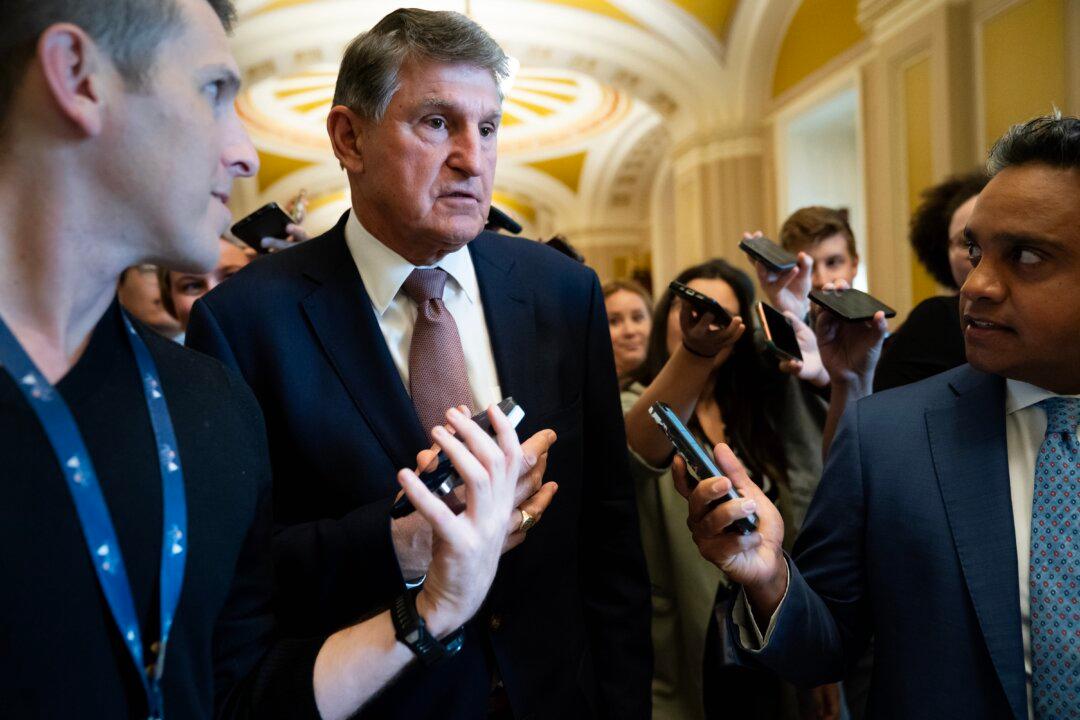The Biden administration’s pause on new LNG exports should be reversed “immediately” as it is not based on facts, Senator Joe Manchin (D-W.Va) said during a recent hearing.
In January, President Joe Biden announced a temporary pause on approving new LNG exports, and promised to take “a hard look at the impacts of LNG exports on energy costs, America’s energy security, and our environment.” During a Senate hearing on Feb. 8, Mr. Manchin questioned whether the White House’s decision was based on facts or was politically motivated.





